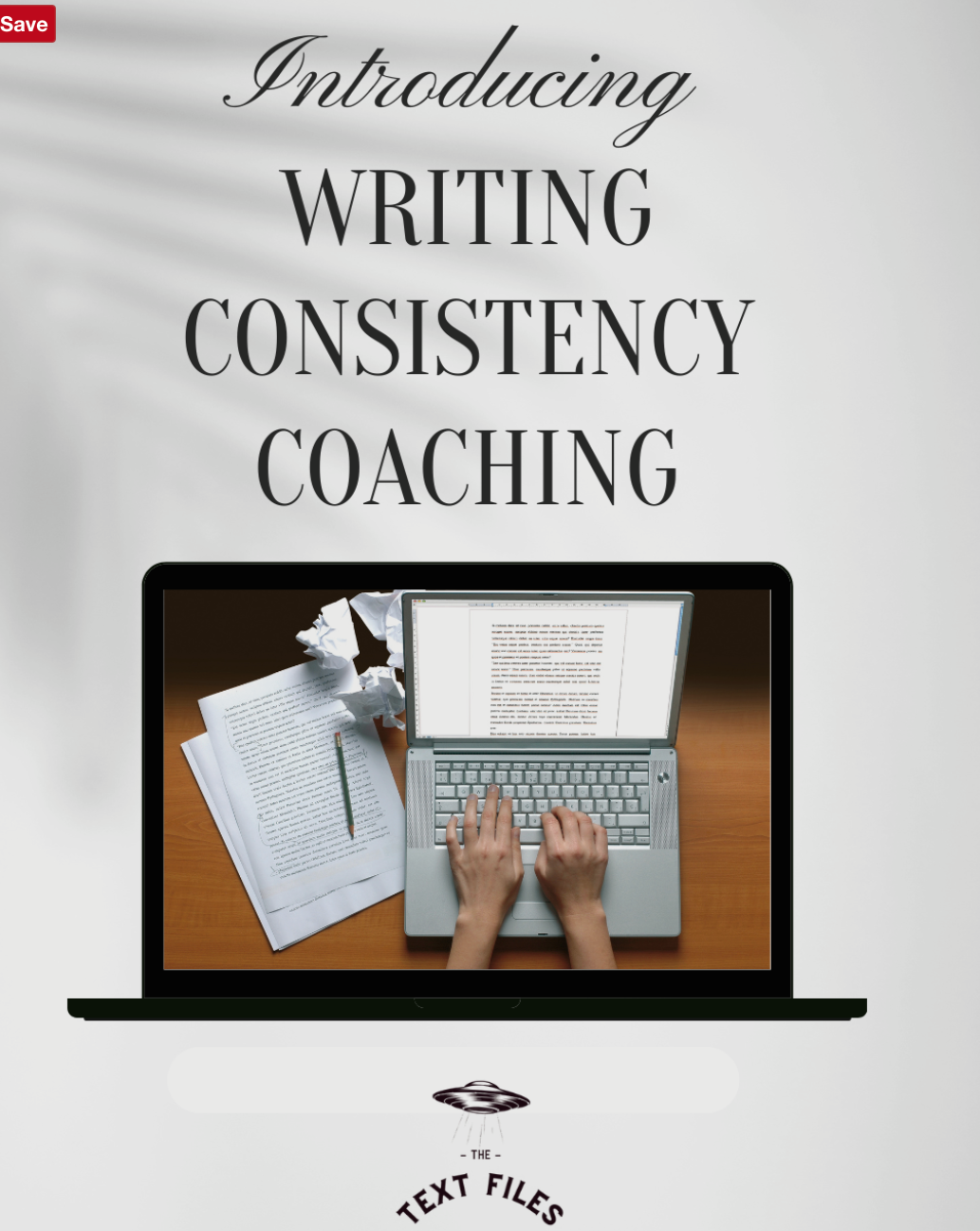
5 Dark & Haunting Books to Add to Your TBR
Some books entertain, but others leave you haunted — the ones that creep under your skin, fill you with unease, and linger long after the last page. If you’re in the mood for atmospheric, unsettling, and unforgettable reads, this list blends the gothic, the supernatural, and the deeply human.
Here are five books — from modern debuts to genre-defining classics — that deserve a spot on your nightstand.

You’re Not Lazy — 5 Hidden Habits That Are Stealing Your Writing Time
If you’ve ever thought, “I’m just lazy,” because you haven’t been writing — pause. That’s not the truth.
Writers aren’t lazy. We’re often overextended, burned out, and tangled in hidden habits that quietly drain our energy. These habits feel invisible, but they’re powerful enough to make you believe something’s wrong with you.
Here are five patterns that might be stealing your writing time — and how you can shift them today.

The 5 Types of Writer’s Block (and What They’re Really Telling You)
We talk about writer’s block like it’s a flaw.
But what if it’s not the problem — what if it’s the feedback?
In my work as a screenwriter and creative consistency coach, I’ve seen this over and over:
Writer’s block isn’t a character defect.
It’s your creativity waving a flag.
Here are 5 common blocks — and what they’re really asking for.

From Breakdown to Breakthrough: How Losing Everything Helped Me Build INKDRY
A few weeks ago, I announced I was building INKDRY — a mobile app designed to help writers stay consistent — in just 30 days. I’d mapped out the concept, sketched the wireframes, and committed to sharing the process publicly.
But right as I was getting started, my iCloud/desktop corrupted and crashed.
I lost every screenplay I’d ever written.
Years of creative work — gone in a blink.

Maybe It’s Not Writer’s Block. Maybe You’re Just Negotiating Against Yourself.
Writers talk about "writer’s block" like it’s a wall. Like something outside of you is in the way.
But what if it isn’t a block? What if it’s a habit? What if it’s a pattern?
What if you’ve just gotten too comfortable negotiating against yourself?
You show up for your job. Your family. Your deadlines. Your friends. But when it comes to your writing — the thing that matters deeply to you — you postpone, avoid, delay, and excuse.

What Is a Creative Consistency Coach?
You don’t need to be more disciplined.
You need a system that fits the way you work.
Most writers don’t struggle with talent.
They struggle with momentum.
After working with dozens of screenwriters — from total beginners to seasoned pros — I’ve noticed a pattern:
The block isn’t usually about plot holes or lazy dialogue.
It’s about disconnection. Exhaustion. Fear
Most writers don’t need critique.
They need clarity, accountability, and compassion.

How Do I Get Over Writer’s Block?
You’re not a bad writer.
You’re not lazy.
And no, the answer isn’t to “just keep writing.”
If you’re reading this, you’re probably not just “having a bad writing day.”
You’re not just distracted. You’re stuck.
The deep, soul-sucking, “maybe I’m not cut out for this” kind of stuck.

How Do I Stay Consistent With Writing?
If you’ve been wondering how to stay consistent with your writing — especially when life gets busy — you’re not alone. Many writers struggle to finish drafts not because they lack ideas, but because they lack support. That’s where writing consistency coaching from The Text Files comes in.

Why Comps Matter More Than Your Logline
I’m serious. The right comp can do more heavy lifting than your logline—especially early on. Why?
Because comps speak Hollywood’s language.
Because reps and execs want to know where your script sits in the market.
Because comps sell clarity.
The job of a comp isn’t to describe your story.
It’s to position it.

Why “Theme” Is the One Thing Your Script Can’t Live Without
It took me eight years of professional screenwriting to learn this one truth: theme isn’t optional.
It’s the core of your story. Without it, even the most high-concept plot will fall flat. You can have clever twists, great dialogue, and stunning visuals, but if your script doesn’t mean something—if it doesn’t leave your audience thinking or feeling—it won’t stick.

TV Shows That Got Better After Season 1
Let’s be real:
Some of the best TV shows didn’t start that way. In fact, a lot of iconic series only found their groove after Season 1.
Maybe the characters needed time to settle.
Maybe the showrunners needed better notes.
Or maybe the network just needed to stop interfering (we see you, Season 1 haircuts).

Why I Use a 9-Act Structure for Every Script (Even When It’s Not A Made For TV Movie)
Screenplay writing hack time: If you’ve ever felt lost in the second act, let me introduce you to the easiest screenwriting structure I’ve ever used—and the one I still swear by.

Why Should We Care? The Key to Writing Characters
Imagine this: You’re watching a new TV show or movie. The premise is interesting, the cinematography is great, the dialogue is snappy… but something’s missing.
You don’t care.
And if the audience doesn’t care, nothing else matters.
The biggest mistake writers make—especially new writers—is thinking that a strong concept is enough. But even the most exciting idea falls flat if the audience isn’t invested in the characters.
So how do you make sure people care?

5 Sci-Fi TV Shows That Nailed Both Character and Story
Science fiction is one of the hardest genres to master. Not only do you have to build a compelling world, but you also need to create complex, fully realized characters that make audiences care. It’s not enough to throw in cool futuristic tech or mind-bending twists—if the story isn’t rooted in character, it won’t land.

5 TV Comedy Pilots That CRUSH Character, Structure & Story
Not all iconic shows start strong, but these comedy TV pilots? They’re masterclasses in character, story, and structure. Whether you’re writing your own sitcom pilot or just love analyzing what makes a show work, these are the episodes to study.

6 Underrated Romantic Movies to Watch This Valentine’s Day (or All Year Round)
Looking for romance movie recommendations to watch this Valentine's or Galentine's Day? Whether you're planning a cozy night in with your significant other, your besties, or just yourself, these underrated romantic classics are guaranteed to deliver all the feels. Forget the mainstream hits—these hidden gems deserve a spot on your Valentine's Day watchlist.

How the Film & TV Industry Prepared Me for Entrepreneurship
When I first started writing, it felt like working in a vacuum. I was pouring hours into short stories, the first one-third of scripts, and ideas no one else had seen. I decided anything I shared with people had to be perfect first. Therefore, I didn’t share my writing with anyone.

Nobody Wants to Read Your Script (Why You Need A Pitch Deck)
So, you’ve written a script—or five. Now what?
Are you seeking representation? Hoping to land funding from a production company? Trying to convince a director or agent to take a chance on your story?
Navigating the next steps can feel overwhelming, especially when you’re competing with tens of thousands of other scripts. According to the Writers Guild of America (WGA), around 50,000 scripts are registered every year.
Out of those, only a fraction—estimated at .004%—actually sell.

Crafting Compelling Spec Scripts for Success
If you’ve ever been confused about the term “spec script,” you’re not alone. The writing world uses the same phrase to describe two very different concepts. Let’s break them down and talk about why each is essential for screenwriters—whether you’re chasing a career in film or TV.

Elevate Your Scripts: The Art of Powerful Dialogue
Crafting great dialogue is one of the most challenging yet rewarding parts of screenwriting. Dialogue isn't just about words on a page—it's about revealing character, advancing the story, and keeping the audience hooked.
Here are some essential tips to help you write better dialogue that stands out and serves your script.
